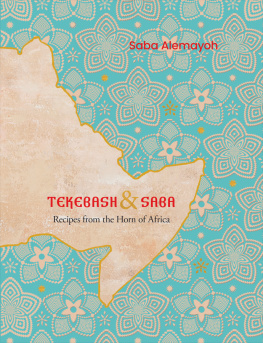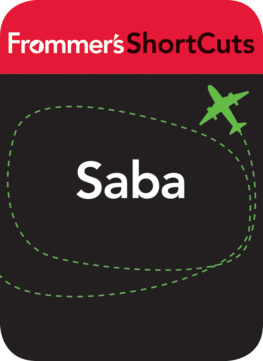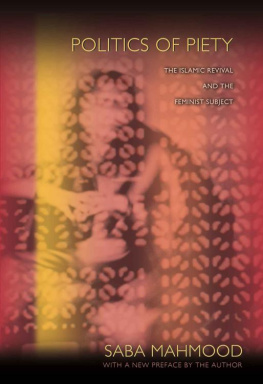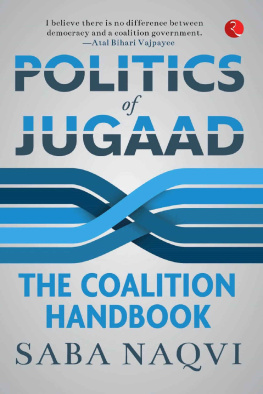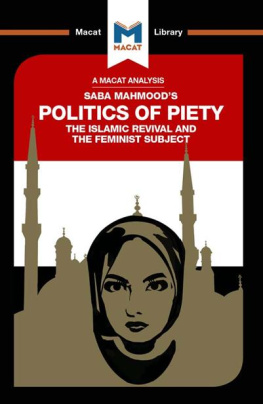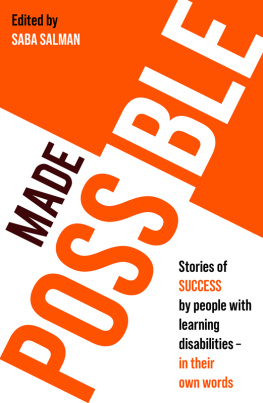From Tigray to the world, a love story through food.
This is not your regular cookbook. The recipes are a legacy of Tekebash Gebre, my extraordinary mother. Tekebash was born in Tigray, under the rule of the last Ethiopian emperor. She lived under a communist regime before fleeing to Sudan. Since then we have been on a migration journey, from Aksum to Khartoum to Melbourne and beyond. Our hearts, however, will forever be Tigrayan, and through Tekebashs simple, vibrant dishes we celebrate a connection that wont be broken. It has been my privilege to translate and record what Tekebash cooked by taste, touch and memory for several years in our Melbourne restaurant. Its our story, and its my tribute. But it will also resonate with anyone who knows the unceasing pull of a distant homeland and the comfort of its food.

When I opened my restaurant in Melbournes Fitzroy in 2015, it was promoted and referred to as Ethiopian. We judged that to be a necessary compromise; most people know Ethiopia, far fewer are familiar with Tigray, one of the east African countrys nine states, which are divided mostly along ethnic lines.
Likewise, the earliest vision for Tekebash & Saba was an Ethiopian food book inspired, in part, by the restaurants success. But as time passed, and the situation became more dire in Tigray, it was increasingly important that we differentiate and identify with our Tigrayness, if you like, first and foremost.
I did not want to bend to the pressure to make my food, my mothers food, fit common Western perceptions about Ethiopian cuisine like that if it wasnt spicy then it wasnt legit. The recipes in this book capture the true Tigrayan dining experience: there are no starters, mains or desserts, simply dishes that are often shared as part of a communal banquet for all to enjoy.
This book is dedicated to the people of Tigray.
Special thanks to my mother, Tekebash, and sister, Sara.
SALAMAT
Prologue
Food seems to be the most tangible window into culture and the stories that make up a life. For us, it has always gone beyond simply sustenance. Food is revered in its own right, like music and dance. There are events around the preparation of food, not just the consumption. For large celebrations everyone comes together to peel tonnes of onions and make litres of honey wine. Women are firmly allocated to the coffee station, and some are simply invited to provide entertainment with sentences that always start with Remember.
Living so far from our homeland, there is an unwritten policy that when travelling to Tigray to visit family, you must empty your luggage of all clothing and fill it with as many spices as you can muster past customs. We would try to make clandestine exits from Australia so that friends didnt plead with us to just bring back one or two kilos of shiro for them in our haul.
This idea inspired me to share my mothers kitchen with the Melbourne culinary scene in 2015 by opening Sabas Ethiopian Restaurant.
This is not your regular cookbook! The recipes are the legacy of an extraordinary woman my mother, Tekebash Gebre born in Tigray in the shadows of the Aksumite dynasty, under the rule of the last Ethiopian emperor. Her formative years were spent under a communist regime before she fled to Sudan during a civil war that gripped the nation for 17 years.
She has been on a migration journey ever since, but her heart continues to beat to the drums of Tigray. Despite having spent more time abroad than she has at home, she is unequivocally Tigraweyti. That is the complexity of identity and home: it cannot be captured by the status of your citizenship, but rather it is an intangible mark within your being.
She has worked with food in one way or another all her life, from landing her first job as a live-in cook in Khartoum, being a housewife, becoming a street-food vendor to raise a child, working as a kitchen hand in restaurants below minimum wage in Australia and being a head chef at her daughters restaurant on one of Melbournes most competitive hospitality strips. My mother not only worked with food but loved her children through it too. As I went through her door she would hold a utility bill in one hand, yelling at me to ring them so they can explain why her bill was higher than it should be, which was followed immediately by What do you want to eat?.
My mamas Tigray cuisine was developed in diaspora communities on her journey across continents. Sudanese food in particular has always been intertwined, with some dishes merged and some ingredients adopted into existing recipes, but some are kept distinctly separate.
When we opened the restaurant, it was booked out for two weeks straight and won accolades beyond our imagination, from The New York Times , Broadsheet and beyond. I tell you this to say that the woman is good, and potentially a pan-whisperer. Throughout the five years of running Sabas Ethiopian Restaurant, we never had a recipe book or any measuring equipment, simply her taste buds. I attempted to write the restaurant recipes down but my mother refused she preferred to work without recipes. So, she cooked using her tongue and I managed front of house from the heart. Food is the way Tegaru show love and keep culture alive, and we wanted the food to be true to us.
We have now finally sat down together to write these recipes to share with you a delectable story, I suppose. I call this book Tekebash & Saba . Food is our familial cord to each other, and to home. Its a window into our story and that of Tegaru.
CONTENTS
WHERE IS TIGRAY?
Tigray is the northernmost state of the Federal Democratic Republic of Ethiopia. Since 1991, Ethiopia has been a collective of nine states divided predominantly along ethnic lines. This division has been about balancing the need for self-determination while maintaining the border integrity of Ethiopia as a whole.
Ethiopia is made up of more than 80 different ethnicities, with almost an equal division between Islam and Christianity. It shares precariously managed borders with neighbouring countries Somalia and Sudan, and is the only country in the region not to have been colonised by a European power. Certain groups predominantly the Amhara and Tegaru (Semitic groups in the north) have forcefully incorporated the south of modern-day Ethiopia. In addition, Ethiopian rulers made arrangements with Italy and England to claim masses of land that werent ours from neighbouring countries.
This is an attempt to give you the context of a region that is steeped in complex histories, and a civilisation that can be traced back more than 2000 years.
It was a kingdom that had reached all the way to southern Arabia, was spoken about by Ancient Greeks and written about in the Bible, Koran and beyond. Tigray was the first place to provide refuge for Islam, and the second in the world to make Christianity the official religion of the state.

